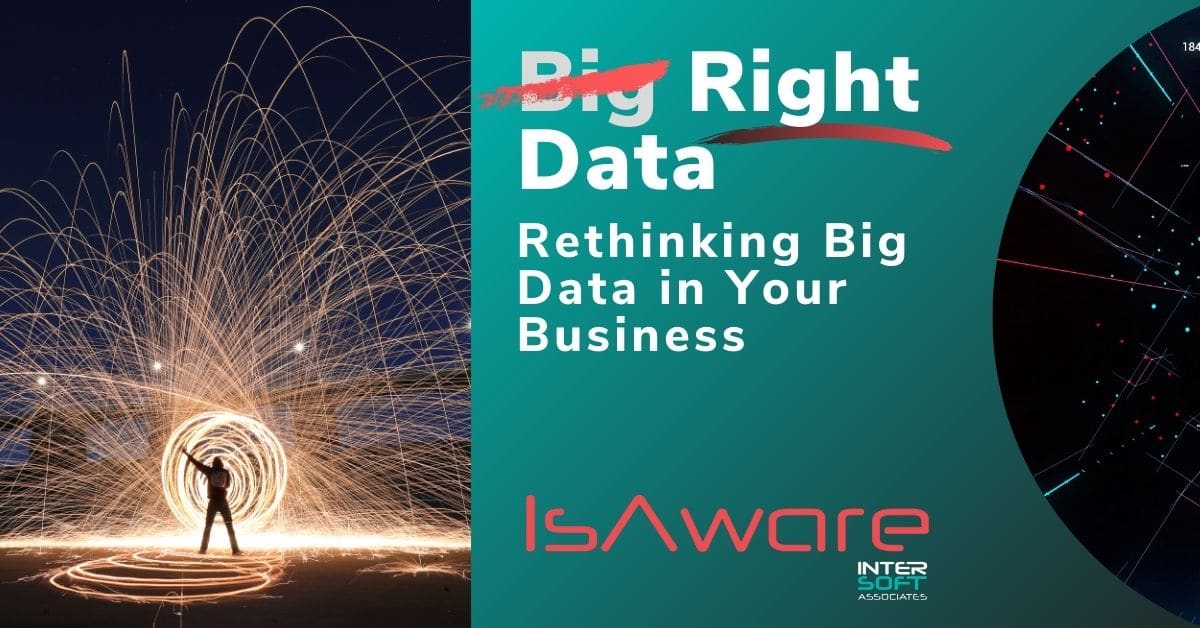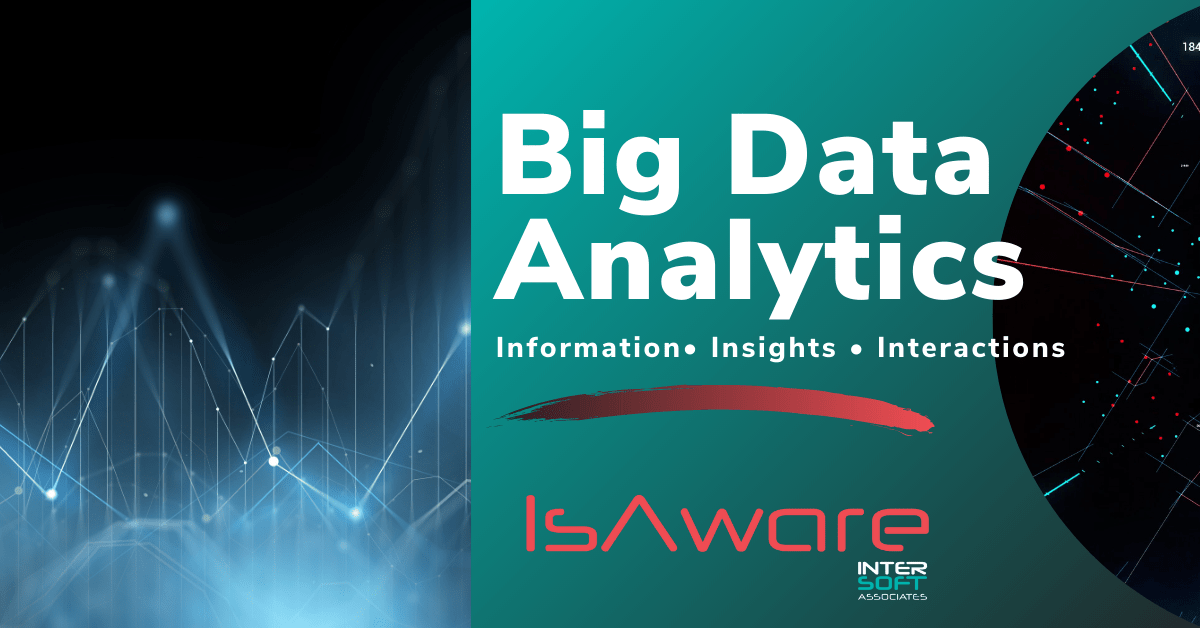Big Data
& Data Analytics

Do More With Your Data
Big Data and Data Analytics initiatives can assist in boosting business performance by increasing revenue, enhancing operational effectiveness, optimizing marketing campaigns and customer service initiatives, responding more quickly to emerging market trends, and gaining a competitive advantage over rivals.
Big Data is Driving Business
Don’t be duped by the phrase “Big Data.” All businesses will profit from analyzing and embracing Big Data, and reaping its rewards for your firm doesn’t require a significant investment in data scientists or pricey data tools. Don’t let your consumer base be eaten away by your rivals. Learn how big data analysis can benefit you.
Valuing Big Data
Your bottom line (profit) and top line (revenue) will be impacted by the proper usage of big data. Big Data analysis affects the bottom line by streamlining processes, reducing labor costs, enhancing productivity, and enhancing customer service. Toplines improves by selecting the most pertinent data from your “data lake” which is used to build customized and successful marketing campaigns for your company. Your average cost per order will significantly drop if you increase customer retention.
Businesses must assess the value of their own data as well as other customer and prospect data. Big Data gives you the tools you need to get a deeper understanding of your market and make important decisions in the best manner possible.
The 7 V’s of Big Data
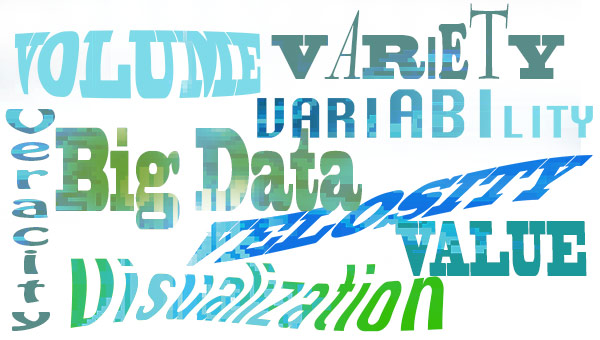
- Volume: Big data should be compared to a harvest; while some is fine, more is preferable. The amount of data collected and the kinds of data that are examined make up the data volume.
- Velocity: Velocity refers to managing the rate and patterns of incoming Big Data in real-time to enhance productivity, income, and profitability.
- Variety: How big is your “data lake?” How varied are the customers who live there? The biggest potential is found when big data is collected from various sources, but because this data is constantly changing, it needs to be tracked and compiled frequently.
- Variability: Big data analytics are particularly problematic because of this issue. Does the big data technology you’re using have any flaws? When you merge different information sources, do several data dimensions occur? Is big data being imported into your data management system inconsistently?
- Veracity: is the ability to identify the biases, abnormalities, or general “noise” that is keeping the valuable information from being evaluated when there are discrepancies in big data analytics. Painting an accurate image of Big Data volume and velocity is frequently difficult due to veracity and variability.
- Visualization: Big data analytics must be presented in an understandable way. Visualization is the cherry on top of the big data cake. When leveraging big data science to make quick judgments for your company, you must have confidence.
- Value: When it comes to InterSoft Associates, this is the crucial component.
We can help you in determining whether big data analytics are appropriate for your specific industry. Additionally, we’ll give you a path for enhancing the data you can use and improving both your top and bottom lines.
Rethinking Big Data in Your Business with “Right” Data
One of your most important corporate assets is data. Big Data is a vital component that contributes to corporate growth and success due to its growing significance in business operations. A massive and complicated collection of data that continues to develop rapidly over time is referred to as big data.
Structured, unstructured, and semi-structured data are the three types of big data that can all be mined for useful and important information. Advanced analytics software may make advantage of all types of big data. The three V’s of big data are as follows:
- The Variety of Data saved in a Big Data system typically stores a huge variety of data types
- The Rapid Rate of data production, collection, and processing
- The Enormous Amount of Data volume that exists in different environments
Use Cases for Big Data

A data lake is used to store enormous amounts of Big Data. The data kept in the data lake can be structured for specific analytical purposes or left in its unprocessed state. In order to make it ready and appropriately prepared for usage in a variety of applications, information can also be pre-processed utilizing data preparation software and data mining tools.
Big Data is helpful in practically every business to assist firms recognize and analyze trends and patterns, address complicated problems, understand consumer preferences, and provide answers thanks to its complexity and diversity.
Here are a few instances of how Big Data is used in various industries:
- Finance Industry: To analyze market data in real-time and manage risk, financial and insurance firms use big data platforms and predictive analytics. Additionally, they use it for fraud detection, risk assessment, brokerage services, and credit rankings.
- Agriculture: Big Data has completely changed this industry, from predicting agricultural yields to manipulating seeds. Big Data is being used by top researchers and experts to find solutions to the challenges of malnutrition and hunger.
- Healthcare Sector: To significantly enhance their healthcare services, hospitals, pharmaceutical firms, and researchers are using big data solutions. Pharmaceutical companies use big data to design new vaccines and treatments much more swiftly and effectively.
- Energy Industry: To keep track of pipeline operations and locate potential drilling sites, oil and gas businesses in the energy sector employ big data.
- Transportation: Big Data is used by manufacturers and transportation firms to manage supply chains more efficiently and optimize delivery routes.
- Smart city efforts: Crime prevention, and emergency response systems are further uses.
Why Should Small Businesses Use Big Data?
In the recent past, organizations could only use a tiny portion of information and data for their analytical and operational applications. Dark data, also known as rest data, was frequently processed, stored, but never used. Businesses were able to use successful Big Data management techniques to effectively utilize their data assets thanks to the introduction of new tools and technology.
Businesses may now increase the capability of their data analytics strategies and their value with effective Big Data management. The use of Big Data also helps to improve the potential for advanced analytics disciplines such as text mining, predictive analysis, machine learning, and data mining. Businesses can use big data to better analyze customer behavior, spot fraud, pinpoint operational issues, control the supply chain, and develop appropriate solutions for persistent issues. When used properly, big data may also assist firms in improving corporate operations, lowering expenses, boosting income, and developing better long-term strategies.
Benefits of Big Data
Big Data has the power to transform your company and open up numerous new doors for expansion. Here are a few real-world examples of how big data may help your company succeed and meet its goals and objectives.

Better decision making
Businesses and organizations will have the proper tools to make smarter, more informed decisions based on accurate and timely information with the use and deployment of big data management approaches. But only if the decision-makers have access to the relevant information required to make these sane decisions. This implies that other departments besides business analysts and IT should be in charge of the collected data. Before making any judgments, firm leaders should review and evaluate data that has been mined. Businesses may avoid non-technical users from becoming overwhelmed with information and make it easy for them to find the answers to their questions by distributing data around the organization in a regulated fashion. They can assist find additional data points that are not currently captured and enable leaders to continue developing sound strategy by incorporating all of the right individuals of the organization.
Improved customer insight
Customers today are becoming more and more loyal to companies and brands that respect their preferences and objectives. In order to better understand their customers’ behavior and offer more value and individualized services, businesses are replacing outdated customer feedback systems with more sophisticated ones created utilizing Big Data technologies. Businesses can increase operational efficiency and discover risks associated with a product or service early on with the correct use of big data technologies. Big Data enables businesses to more effectively plan, read, and assess consumer responses as well as gain valuable insights into their purchasing habits, preferences, and behavior. EBITDA is positively impacted by the enormous effects that data use will have on operations, as well as potential product improvements and cost savings (earnings before interest, taxes, depreciation and amortization).
Better Products and Services Delivery
Understanding of their preferences and desires. Big Data makes it easier for you to understand how your clients view your product or service and enables you to make adjustments to meet their needs. You may quickly test a large number of options with Big Data. With more knowledge, you can quickly iterate through more possibilities to make the best judgments. It assists you in creating strategies to offer superior customer service and aid your devoted customers and stockholders save time and money. When a consumer is paying twice for a financial service, such as paying extra for travel insurance that is already included in a bank account service, for example, transactional data analysis can reveal this. In this manner, your company can offer suggestions to customers in real time.
Improved Business Operations
The availability and application of Big Data technology has had a considerable impact on the automation and efficiency growth of many company processes and industries. Big Data has the ability to supplement, enhance, and entirely revolutionize a wide range of corporate activities, whether in sales, manufacturing, marketing, or human resources. Automation has made routine, low-value jobs simpler and freed experienced personnel from laborious, time-consuming tasks so they can focus on higher-value tasks like creating strategic plans that are more beneficial to the company.
Recommendations for Effective Big Data Management
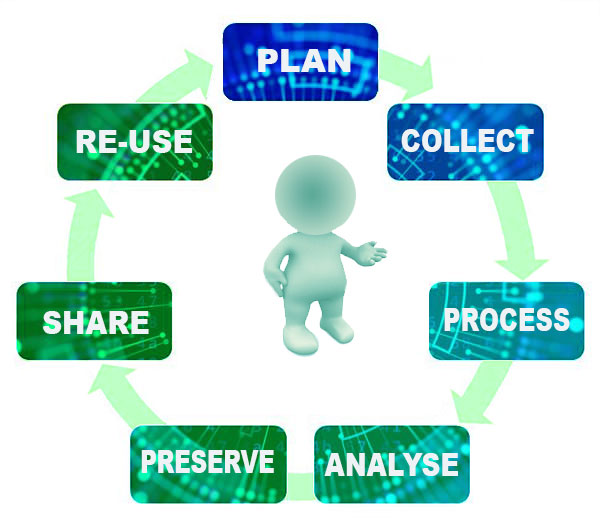
InterSoft has worked with businesses at all “Big Data maturity” stages as a custom software development and consulting firm. Some people lack the knowledge necessary to collect and utilize the Big Data that has been saved in order to conduct research and identify more effective solutions. Some people simply lack the information necessary to create an action plan. We can assist you in making better use of the data you already have and the data you don’t even realize you need to benefit your business.
Big Data comprises a lot of information, therefore it’s critical to handle it well so you can locate the correct data for your organization at the right moment. The following advice will assist you in developing a successful big data strategy:
- To ensure that the Big Data strategy is always in alignment, clearly identify your goals and objectives.
- Any earlier Big Data use cases that support your corporate objectives should be categorized, given priority, and documented.
- Identify any data sources that are accessible and assess the present data usage strategies used in the various organizational processes.
- Consider using cloud storage to potentially reduce costs and ease deployments.
- For various analytics applications, manage big data sets utilizing an iterative process.
- Collect and store data for possible future applications and uses.
- Create a project plan that includes a gap analysis of the technologies in use today and the data architecture of the company.
We are Here to Help
Big data analytics’ benefits ultimately depend on how effectively and precisely they are processed. InterSoft will work with you to determine which Big Data analytics are appropriate for your company’s needs and will give you a road plan for using the data and the insights it yields. InterSoft Associates will assist you in exploring the possibilities, whether it is suggested to make modifications to the procedures, platforms, or software your company currently employs or creating a custom solution.
Understanding Business Intelligence: Inertia, Insight and Impact
Today, being able to effectively use data, technology, and business intelligence is essential to creating a successful business.
The process and architecture of gathering, storing, and analyzing data to better comprehend its potential economic impact on both the top and bottom lines is collectively referred to as “business intelligence,” or BI. This information is important for enabling wiser and more effective decision-making.
The phrase “business intelligence” (BI) is frequently used as a catch-all to refer to the data itself, spreadsheets, reporting tools, data mining software, analytics, and more. Business intelligence is to provide managers with multi-dimensional views that enable quick analysis, iteration, and decision-making. To make sure your data can be used by your company and is useful.
Accuracy and timing are equally important. Decision-makers can react instantly thanks to business intelligence, which integrates the two.
Let’s investigate the relationships between business analytics, data mining, and key performance indicators (KPIs). The three components of business intelligence—inertia, insight, and impact—are explained in this guide. Let’s get going!
How Does Business Intelligence Help You?

Business strategy can and should have a role in determining which decisions are good and which are bad. Managers and decision-makers can steer clear of serious and expensive errors by using the appropriate data.
At its core, business intelligence is data intelligence; as we’ve already covered, data is simply another name for information. It is a method of gathering and evaluating all pertinent data points and presenting that data in a useful way. Data mining is used by business intelligence to do this.
Data mining is the process of gathering data, properly evaluating it, and delving into its components and meaning. All the data in the world won’t assist you much if you don’t grasp what it means or how it applies to your organization. Instead, you need an expert to help you comprehend how to use and exploit the data.
For handling business data, we now have a variety of alternatives for data gathering and storage. The cloud is infinite, and tech behemoths are always coming up with fresh data-based solutions. The majority of businesses lack the resources necessary to quickly sort through millions of data points.
The goal of business intelligence is to achieve just that. Making timely, well-informed decisions based on key data points is the aim. Accurate pertinent data points act as your parachute if you leap out of an airplane. If done correctly, BI offers you this ability.
Business Intelligence asks the following questions, based on the data that you have available:
- What are you currently doing?
- What are you currently focusing on?
- What are you currently not focusing on?
- What does the future hold?
- Where should you be focusing?
Business Intelligence: Inertia

There are two ways to think about Inertia in your business.
- In what direction are you headed?
- In what ways are you not improving at all?
Phrases like ‘we have always done it this way’, and ‘if it was good enough for my predecessor, it’s good enough for me’, and ‘it worked before’ are indicators that your company or its employees are satisfied with the status quo. But in business, there are 2 maxims:
- If you plan on just remaining stagnant, you will go backwards.
- Good enough is no longer good enough.
Your competitors, however, are not satisfied with the status quo. They are innovating, iterating, and changing approaches with tweaks that result in accelerated growth and success. Additionally your customers are adjusting to rapid change with higher expectations. What worked perfectly just a few years ago may not work next week.
Everything will pass you by if your business intelligence procedures do not change and are not updated. New technology, new data mining methods, new information, and new business intelligence procedures will leave your company out in the cold while everyone else excels.
Here are some of the categories some companies look at to gauge how well they are doing:
- Revenue
- EBITDA (earnings before interest, taxes, depreciation and amortization)
- Marketing
- Customer engagement
Your growth trajectory is reliant on what you know and what you do. Consider it similar to a marathon. You must be aware of the location of the starting line, the finish line, and the recommended course of action. Knowing the locations of the water stops and the major hills on the course will help you prepare better, which will help you perform even better.
If you do not have the information necessary to pace yourself, you could start slowing down midway through the race, or you could even run in the wrong direction! Racing a marathon does not matter unless you run on the right course, in the right direction, and against your main opponents.
Business Intelligence: Insight
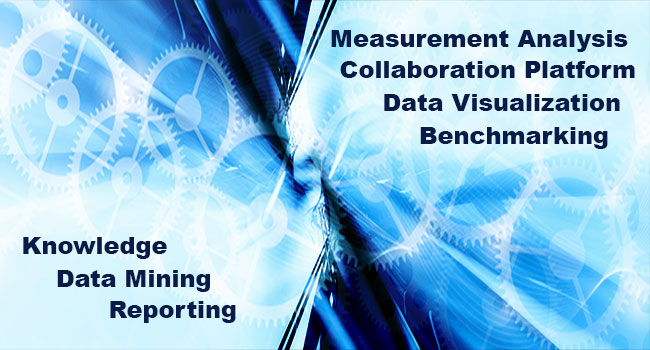
Are you hitting big Key Performance Indicators? How do you actually know?
The answer probably lies in your business strategy. You have set goals for the year and probably have a five-year plan as well—and one of the benefits of Business Intelligence is that it provides the data to tell you the truth.
It’s crucial to know what you’re doing while utilizing BI tools and applications. BI tools are widely available. These include Microstrategy, Microsoft SSRS, Tableau, and Power-BI. You need a solution that works for you in order to be effective, which frequently calls for consultancy and custom development.
Where to look, when to look, and what to do with the data you find are all part of an effective data management plan. With the abundance of data you may have, it is common to feel overloaded without a well-coordinated strategy.
Each time a customer interacts with content, that is a data point. Here is an example of the data gathered from a simple newsletter sign-up:
- Device type
- Location
- Customer’s name
- Demographic information
- Email address
- Customer’s Interests
That is a great deal of data from a single email input. However, without software designed for storing business data and delivering it in an analytical and actionable fashion, the data is not put to full use.
When it comes to analytics for business, software reporting tools are often balancing competing priorities. These priorities are speed and depth. While many tools can pull quick reports, how accurate are they? What data sets are they prioritizing? With the right professionals on your side, you can prioritize data sets that are important to you accurately and understandably.
The health or effectiveness of a process, business division, or workflow can be determined using the appropriate data sets. When necessary, you can use this information to make wise last-minute pivots.
The Impact of Business Intelligence
Business Intelligence as a concept has been around for a long time, which is leveraging a database to make important business choices. However, the entire world of BI has exploded in recent years.
Why? Because of improved technology and the continual reduction of mass storage options and costs. Companies are mining data like crazy today. Every possible touchpoint contributes to this surge in data collecting, raising logistical and ethical concerns regarding the potential implications of such data.
The importance and accessibility of business intelligence have also expanded as a result of smartphones, wearable technologies, and the improved ability to store data in secure cloud databases.
All of this illustrates how Business Intelligence is extremely important when it comes to meeting and improving your KPI’s. There is a common phrase in technology development—garbage in, garbage out (GIGO.) If your materials are garbage, your output is garbage. You can’t make treasure out of trash, no matter how talented your team is. In order for data to deliver a positive impact for your business, you need to capture the right data for your specific business needs.
Why BI Matters
High-quality data matters because it has a direct impact on your company’s output. Output equals customer service and interactions, brand strategy decisions, products and more.
Even if this output isn’t tangible, it is determined by the information you have and the choices you make based on it. The benefit of BI is that it creates a solid basis for the future of your company.
Sometimes Business Intelligence is called analytics. Predictive analytics and descriptive analytics are the two categories of analytics.
Descriptive analytics describes what has occurred and what adjustments are required. Predictive analytics, on the other hand, make changes based on historical trends. Descriptive analytics must be precise for reliable forecasting and corporate strategy. The purpose of BI tools and software is precisely that.
For accurate forecasting and business strategy, descriptive analytics need to be very precise. This is exactly the point of BI software and tools.
Leveraging BI with Custom Software Development
BI can positively transform your growth trajectory when used correctly. It provides the tools for companies to hit key performance indicators, capitalize on opportunities and revolutionize customer service.
If you’ve been capturing data but haven’t been taking action on it, if the actions you have been taking with data have not been successful for your business, or if you are not sure how to get started with the first steps in harnessing Business Intelligence, InterSoft Associates can help. A free consultation may result in a whole new way of thinking for your business strategy.
Big Data Analytics: Information, Insights and Interactions
Analytics from the data, or information, your company uses, stores and interacts with helps tell a story. History has deeper meaning and future planning can be more specific – and accurate – when the leveraging the insights that Big Data provides. Your business can leverage Big Data Analytics to help drive better decision making, understand key performance indicators and see why it’s critical to have a broad perspective on data, so that your company can do more with your existing data.

Exactly What is Big Data Analytics?
We’ve explored before how Big Data is essentially both historical and real-time, relevant information on trends to manage a business better. Big Data Analytics makes use of this data, even when it comes from many or unrelated sources, in order to better comprehend, interpret, and contextualize such trends. Big Data analytics allows you to more quickly reach better-informed decisions, more correctly identify previous trends, and more accurately produce forecasts.
Big Data and Big Data Analytics help to more confidently comprehend and answer:
- What has changed from six months ago? Why?
- What current trends are emerging in business with crucial aspects like sales, customer acquisition, deliveries and more?
- What external elements might affect the patterns?
- What additional information or data is influencing trends and patterns?
Leveraging The Data You Have
Every company has data. How valuable an asset is that data is a function of how it is used. For example, a spreadsheet containing customer email addresses is data. That information is more helpful when it is utilized to interact with clients and encourage them to make purchases.
Today’s smart businesses are deliberate about the data they collect, how they obtain it, and why. What if you knew a customer’s favorite color was red, that they liked to go camping, and that they lived close to mountains in addition to their email address? This straightforward example shows the importance of big data analytics: when data is gathered, it tells a story. The buyer in this scenario is likely to reject the salesperson’s offer to buy a blue surfboard but may be intrigued by some new red hiking boots.
Big Data analytics, when used on a bigger scale, aids in the detection and management of trends. Analytics enables you to comprehend how realistic a growth goal for your business, such as a specific percentage growth, can be and why. If you’ve had a run of profitable quarters, your profit and loss statement will demonstrate it. Analytics can let you compare and contrast those quarters with a variety of factors, such as weather conditions, website activity, and supply chain developments that could all be influencing the reasons why the figures are what they are. Analytics can foresee what may change in the future, why it may change, how it may affect your growth objectives, and most crucially, how you can help shape it.
Analytics, You and Your Customers
We engage with big data every day and see the results of big data analytics. When we shop at Amazon, for instance, and get suggestions for subsequent purchases, those suggestions are based on the actions of millions of other consumers who have metadata that is somewhat similar to yours and has been transformed into useful information. The recommendations are made with increased assurance thanks to the analytics that were applied to the data. Everything is, in some way, frequently influenced by data, from the postings you see on social networks to the articles that are suggested in your favorite news apps or websites to the subject lines you encounter in promotional emails.
If none of these illustrations seems familiar to how your business operates, you are probably not fully realizing the potential that your data has. This means you are most likely not reaching the right customers with better messaging, or positioning your business to achieve more success while avoiding possible pitfalls. You can and should assume that your competition is doing more with data than you are. Big Data is both a massive competitive advantage as well as a tremendously valuable business asset when properly utilized.
Doing More With Data
You do not need to be a data expert to start doing more with your data. You don’t even have to completely comprehend what big data analytics are or how they can affect your company. All you have to do is ask someone who does.
The right Big Data Consultant can help you take a deeper look at your data, better understand its value and potential. At InterSoft Associates we help businesses realize many possibilities they often did not even think were viable. If you are wondering if your company could be doing more with Big Data, the definitive answer is YES, absolutely! The bigger question is how quickly could your business benefit from Big Data and Big Data Analytics. Call us to find out!
Why You Need a Big Data Consultant
Big Data is a phrase that essentially means a very large amount of connected information. In the hands of the right Big Data Consultant, that information becomes transformational for you . Better business decisions get made, sharper insights are discovered, and ultimately the information – the data – can become a competitive differentiator. Let’s explore the incredible value of a Big Data consultant and how they can be part of your sucessful business strategies.

What is a Big Data Consultant?
A Big Data Consultant understands all aspects of data technologies and how they can be leveraged to help you acheive your business goals. What is your business presently doing with all of your data? What could your company be doing better? The right Big Data consultant can teach you new strategies and practices which can be taught and developed in a way that positively impacts your business.
Qualities of a Successful Big Data Consultant
A Big Data Consultant has to take a holistic approach to your business and your unique issues with a positive attitude of problem solving, seeing more potential and possibility for the business. They need to comprehend the following:
- The science of information trends, and how to properly see and exploit trends in your data.
- The potential of the data your company has already gathered and what further data is required to get the optimal results desired.
- How outside systems, applications and software can have a positive impact on your data when integrated.
- The ability to identify and seize new opportunities.
The Value of Experience
A Consultant that is new to Big Data is likely to be on the cutting edge of technology. New state-of-the-art gadgets and tools are available to the capable technologist. Competency with digital tools and technologies is critical, and a professional Big Data expert knows exactly how to utilize these tools, and what data is needed to assist you in achieving your desired business goals. This helps increase efficiency, decrease costs and uncover untapped, new opportunities.
At InterSoft Associates, every Big Data Consulting project we work on draws from our vast experience dealing with clients of all sizes and industries. We can recommend strategies based off of other similar strategies that have worked well for previous clients. Due to our experience and ability to predict potential issues, we can advise against taking a given course of action.
Your business does not have to be a large enterprise-scale business to benefit from the advantages that Big Data consultation provide. Most businesses of any size are already most likely collecting data. The right Big Data consultant can help you do more with your data, even for small to medium sized businesses.
The Future of Big Data for Business
Businesses are in the midle of a technological explosion, with the Internet of Things, machine learning, augmented and virtual reality, health apps and tele-health visits, smart home technology and more creating new data opportunities where a vast amount of data available to businesses. What does all of this data mean to you? Is it useful to your business?
Again, here is where the value of Big Data analysis comes in to play. An experienced, capable consultant will be able to prognosticate in many ways. Is what you are considering now going to be valid, useful, or accessible in five years? As new technologies emerge, will the data strategies you are employing be ready for the future?
As new technology trends emerge, new ways of thinking and data and leveraging it will emerge. A professional Big Data consultant naturally stays informed about the latest technology and other aspects of the industry. InterSoft Associates assures that the initiatives you are engaging in today will be ready for tomorrow and beyond.

Understanding Business Intelligence: Inertia, Insight and Impact
Building a successful company today requires the ability to leverage data, technology, and Business Intelligence....
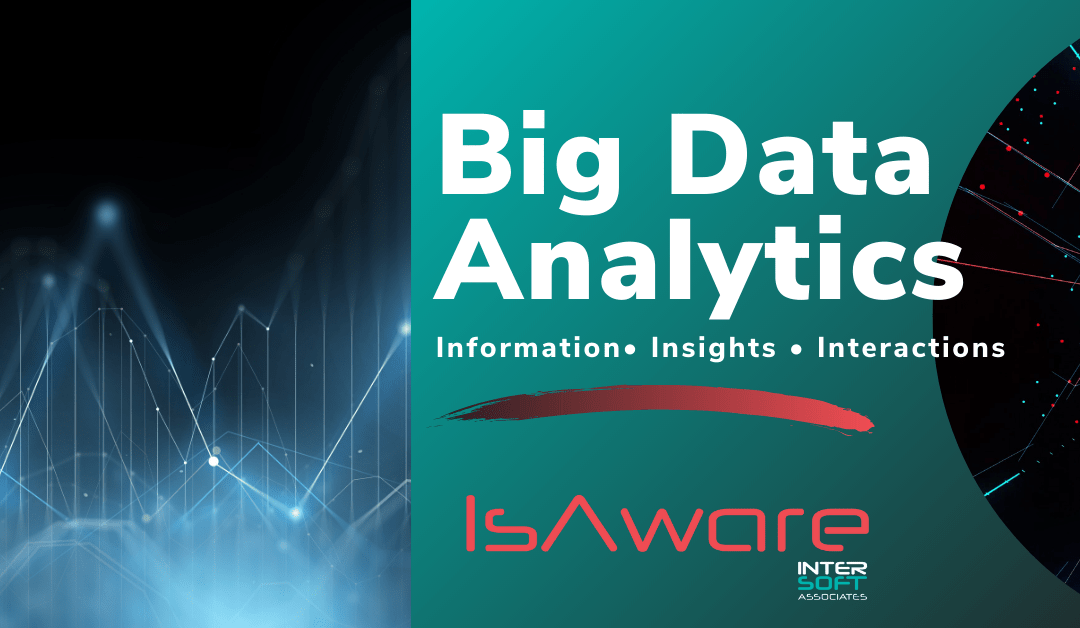
Big Data Analytics: Information, Interactions, Insights
Analytics from the data, or information, your company uses, stores and interacts with helps tell a story. History has...
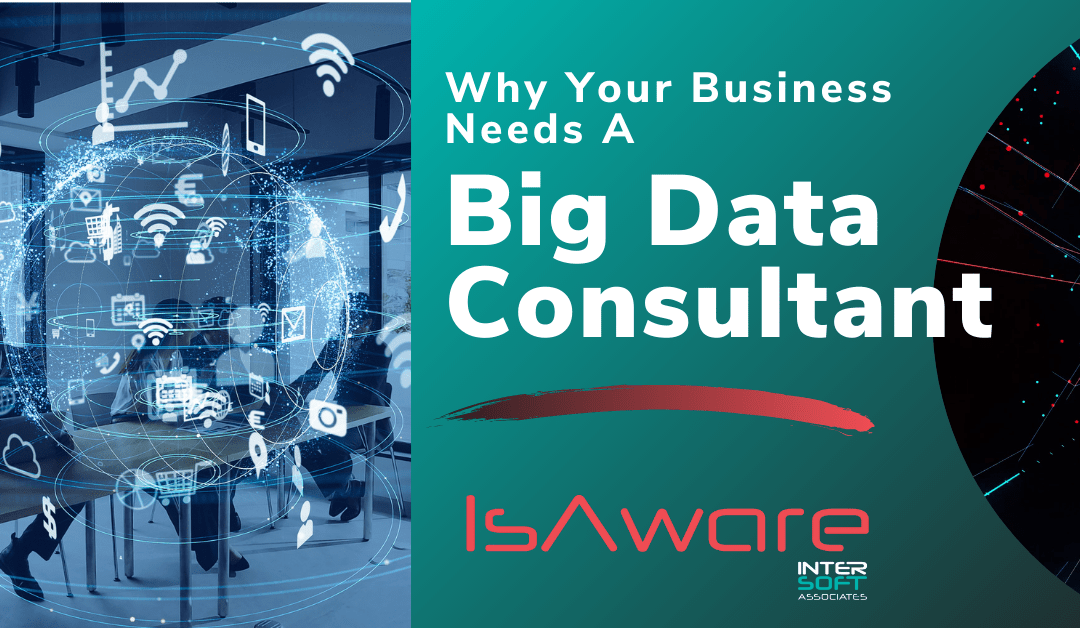
Why You Need a Big Data Consultant
Big Data is a phrase that essentially means connected information - a great deal of it. In the hands of the right Big...




